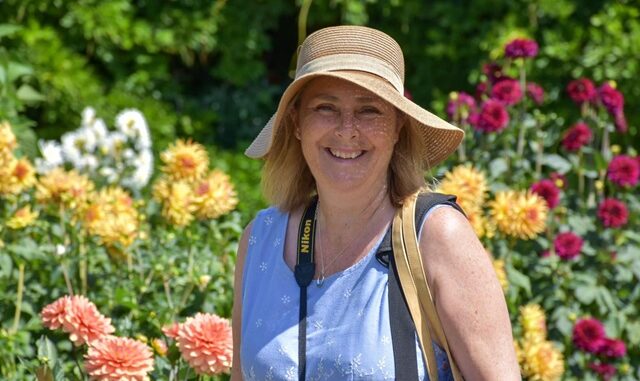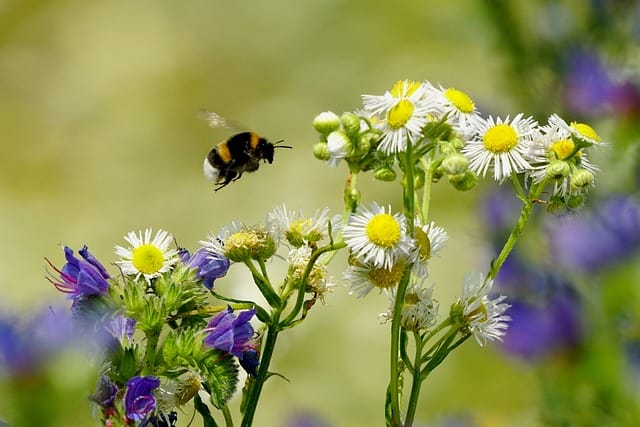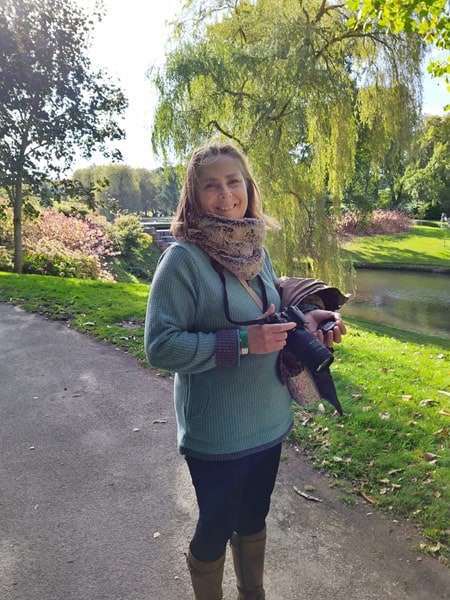
A petition has been launched calling for Kent County Council to halt its use of glyphosate weedkiller over concerns about the impact on insect and wildlife and even people’s pets.
Ahead of a planned eight week spraying schedule in Thanet, St Peter’s mum-of-two Kerry Sabin-Dawson has written to county councillors, lodged a complaint with the authority and set up the petition which has gained 646 signatures in 6 days.
Kerry, who is a teacher at Wellesley Haddon Dene School whose pupils recently joined a Restore Nature Now rally, says the fact Thanet council has stopped using glyphosate in favour of a safer steam foam alternative should mean KCC does not use the chemical treatment on the isle either.
However, KCC plans to start spraying in Thanet from this Monday (August 12).

Kerry said: “I’m a teacher at Wellesley Haddon Dene and we have a really strong ethos of looking after the environment.
“I’m very passionate about the environment and I know the problems glyphosate can cause. Professor Dave Goulson (professor of biology at the University of Sussex and a specialist in ecology and the conservation of insects) has written about the insect apocalypse and what we are doing to cause this.
“I was at Thanet council’s meeting when they voted to stop using glyphosate and I was overjoyed. Then I found out that KCC is going to do this spraying. I am absolutely appalled that they are going to do that when Thanet council no longer does.
“People in Thanet have already spoken out about this and were heard by our council but KCC is not listening to what people want.”
Last September Thanet councillors raised concerns over use in the district of weedkiller containing glyphosates.
Councillors Becky Wing and Barry Manners questioned the use of the herbicide which some studies have labelled as a probable carcinogen while others say the product, most commonly known as RoundUp, is toxic to fish and birds and can kill beneficial insects and soil organisms that maintain ecological balance.

In February of this year, Thanet council agreed that an additional £100k will be used to fund Hot Foam weed control instead of Glyphosate. The hot foam equipment can also be used to clean graffiti and chewing gum from walls and pavements.
The European Chemicals Agency says there is no reason to classify Glyphosate as a carcinogen and it is approved for use by the Health and Safety Executive (HSE) as safe to its users and the public, and for use on the public highway.
But The Pesticide Collaboration – hosted by Pesticide Action Network UK and the RSPB – is a coalition of environmental and health groups, academics, farming networks, trade unions and consumer rights organisations working under a shared vision to urgently reduce pesticide-related harms in the UK.
They say: “Pesticides are chemicals designed to kill living things. A product may be designed to target a specific pest, but it has been estimated that less than 0.1% of pesticides actually reach their target. The remainder of these chemicals end up contaminating water and soil, affecting non-target species such as birds and bees.”
The Pesticide Collaboration wants to see pesticide-free agriculture, ambitious pesticide reduction targets and the phasing out of pesticide use in urban areas for weed management in towns and cities, in parks and on roads.
A number of councils across the UK have already gone pesticide free or pledged to do so. This includes Glastonbury- the first to make the move in 2015- Tendring in Essex and, recently, Newton Abbot, Devon. Folkestone and Hythe council has drastically reduced glyphosate use.

Kerry says she has had good responses from county councillors Ros Binks and Derek Crowe-Brown but says that is not enough to turn around KCC’s decision on Glyphosate use.
She said: “They have both been very supportive but they are only two councillors so they are not going to be able to turn this around.”
Kerry raised the petition to “show the feelings of people in Thanet” and says the number of signatures and the comments have been encouraging.
She said: “It isn’t just me that feels this way. A lot of the population have noticed the decline in insects and that has a massive impact on all creatures feeding in those areas. Hedgehogs are massively affected as they are scampering around those edges picking up the poisons. People are also concerned about their pets, their dogs sniffing around it.”
Kerry says if she cannot get any action she will ask town and parish councils to lobby KCC for a change of policy on pesticide use.
She would like the 8 week spraying programme to be paused while KCC looks at alternatives, such as Hot Foam.
Weeded streets pledge
Green town and district councillor Tricia Austin said: “At Ramsgate Town Council, we held a two hour online meeting with KCC earlier this year at my request. They refused to stop spraying weedkiller on our streets but did say that if residents weed their own streets, they won’t spray them.
“They undertook to let us know when they planned to start spraying, and have been as good as their word, which is how we know they plan to start in Thanet on 12th August.
“I’ve publicised this widely on social media, and I know a number of residents’ groups have been out weeding, so it’ll be interesting to see if KCC do as they promised. I’d ask anyone who’s weeded their street to keep a close eye on what happens, and let me know on [email protected]”
Diluted
A KCC spokesperson said: “”The herbicide we use is glyphosate diluted with water. It is approved for use by the Health and Safety Executive (HSE) as safe to its users and the public, and for use on the public highway, amenity areas, private properties and gardens.
“The HSE approval process specifically examines the safety of the herbicide for use on hard surfaces and its risk to people, the environment and flora and fauna.”
‘Irresponsible’
County Councillor Karen Constantine says she has raised the issue of glyphosate use three times at full council meetings and has called for a risk assessment for the workers using the products.
She added: “KCC are frankly irresponsible when it come to the use glyphosates.
We all now know that use of these chemicals causes harm. Every year where ever glyphosate has been used – residents report bee’s dying, dog owner’s report their pets becoming sick. KCC always downplays the risks.
“I’ve also requested a risk assessment in regard to KCC workers and contractors using these products. The GMB union has called for the guidance by the World Health Organisation to be heeded, and for these products to be treated as a severe health risk to the general public. KCC don’t listen to these pleas.
“On the balance of current evidence available KCC should stop using glyphosate immediately and replace it with safer alternatives – many of which have been trialled by councils in the UK. Indeed I reeled off a list for the councillor’s at the meeting.
“KCC would do well to heed this call to action, which as I pointed out, follows a landmark decision in the US which ruled that Monsanto’s Roundup – which contains glyphosate as its key ingredient – was liable for a terminally ill man’s cancer and ordered the company to pay $289 million in damages. This was the first case of its kind but there are another 8,000 similar cases pending in the US alone.
“This sort of significant legal claim will eventually happen in the U.K. and councils like Kent County Council who have turned a blind eye, need to be beware.”
Find Kerry’s petition here
And information about becoming a pesticide free town/district here

